Name: Justin Mendoza
Location: Philadelphia, PA
Favorite Athletic brew: Free Wave
Instagram: @kingsnarlz
Throughout his professional career, Justin Mendoza has worn many hats, each of them representing an important part of his life and personality.
He started his career in fashion design, working for a brand he loved in downtown New York. Then he shifted toward wellness and mental health, providing support for those in the LGBTQIA+ community who have struggled with trauma, substance abuse and addiction.
While he’s helped his community evolve and become better versions of themselves, he’s also discovered many amazing things about himself and those close to him, as well.
Justin’s passion for helping others was instrumental in starting an intensive outreach program at one of the leading LGBTQIA+ health centers in Philadelphia.
“Part of my passion about it is also that my LGBTQIA+ community is deeply affected by substance use. That is one way in which I feel like I’m able to contribute to the wellness and thriving of my community. There are very few specific substance use programs out there, so it was very unique and much needed … Having treatment, whether it’s a program like that or working with a therapist like myself who is very out and proud, clients feel seen, heard, and safe. It makes me feel really connected to my community and able to contribute in a really positive way.”
Justin hopes to continue to use his voice to advocate for more awareness on mental health, and he’s determined to help reduce stigma around treatment and therapy.
Read on to learn more about Justin and how he’s helped better his community through sports and mental health advocacy.
***
Tell me a little bit about yourself and how wellness, fitness and sports came into your life.
Back in high school, I was on the track team. I was actually fairly decent at various PE sports. Even though I didn’t know my sexuality at that time – though I knew I was different – there were those typical schoolyard dynamics that made me feel “other than.” So, even though I was decent at a lot of different sports, I didn’t feel included.
I was a fast runner, and I really enjoyed track and field. It was a blend of individual and team sport, so that seemed to work for me. I also did cross country, and I just liked being out in nature. In undergrad, the section of Philadelphia where I went to school and live now has a fantastic network of trails. Post-grad, I worked at an outdoors store and got into rock climbing, camping, hiking – really great outdoor-oriented activities that have a blend of being in your own zone while also encouraging and enjoying time with other people.
I really enjoyed that. It was a way for me to pursue my interests in wellness and sports and fitness in a way that felt comfortable and safe. With that, also coming back to Philadelphia and getting involved with the LGBTQIA+ community, it’s been a great experience being part of LGBTQIA+-specific leagues. The flag football league and the softball league, which are inclusive and have folks who are allies and don’t necessarily identify as LGBTQIA+, are known as a safe space, and it feels great to be a part of that community and just have fun without pressure or feeling anxious.

You work as an LCSW in the mental health field. What made you want to pursue that career?
This is my second career – My first career was fashion design, and I worked in Manhattan. As a tie-in to the previous question, while I was on my own journey from the end of an engagement to be married, after that relationship, I pursued ways to heal through holistic approaches. I signed up for the Institute for Integrative Nutrition’s Health Coaching program. I really didn’t know what I was going to do with it, but I knew that I had always had this interest and passion for wellness.
So I finished that program and then became a health coach. In doing that work, I focused on working with LGBTQIA+ clients, and I found that I was often uncovering some underlying reasons as to why folks had the nutrition and lifestyle habits that they did. Sometimes I would have to refer those patients to someone else because I was unable to provide treatment.
Also, continuing on my own personal and professional journey, I decided to take a course in social work. I looked at different programs to become a therapist. When I took that first course to try it out, it was during the Occupy Wall Street movement. So that social justice piece really clicked for me. I was like, yep, this is the right path.
In my life, following the signs along the way and trusting my instincts has always served me well. So, I completed my Masters in Social Work at Rutgers. When I looked at specialization, it made a lot of sense for me to continue working with the LGBTQIA+ community and to focus on substance use. So that was the area in which I specialized.
My additional certifications include CAADC – a Certified Advanced Drug and Alcohol Counselor – and CCTP – Certified Complex Trauma Professional.

What originally drew you to fashion design, and what made you want to consider a different career after that?
I have always been a creative person. My father was an artist, my mother worked in the fashion industry on the production end of things, and my aunt owned her own advertising agency. So I grew up in those spaces. My family was creative, hard-working, and entrepreneurial.
As far as fashion – I looked at different disciplines originally. I was interested in architecture, but there was way too much math. Then I looked at photography and interior design, graphic design ... I was looking at all these different programs when I was in high school. Philadelphia University had all of those programs. I was like, cool, I can figure it out there.
I started as a graphic design major but then felt like fashion was more my passion. As part of my high school experience and my coming out process, I was very expressive; I was really into punk rock – that was really empowering for me, music that had some social message behind it. And so I expressed myself through my appearance, and I enjoyed being a little provocative around that. So that led me to pursue fashion, which was really fun – I’m glad that I did it.
I got to fulfill a childhood dream, if you will. I was a head designer for a brand I loved. But there are also some things about the fashion industry, those negative stereotypes that can be true. In the industry, there are very few folks who get to be really creative working with fabric and things like that. I was often sitting behind a computer. I started wondering if I still wanted to do this when I am older. There were also some things that just didn’t align with my values.
So, having done all that and feeling accomplished in the field already, I also felt like I was ready to move on. Before that work, I had been interested in wellness, of course, and I was contemplating that even when I graduated college. So, after having kind of crossed the fashion design thing off the list, I was looking for something more fulfilling and meaningful for me.

Tell me about your path to wellness and sobriety.
It continues to evolve. I’m a growth-oriented person and very curious. Psychotherapy is a great career for that because you can keep it fresh and interesting by continuing to do your own work. As I mentioned, with the ending of a significant relationship, I was sort of confronted with myself in a way that I hadn’t been before.
I was asking, How do I heal myself? Similar to my health coaching clients, it started with more of an external focus. What does my nutrition look like? How can I be more active? What are some things that can help me lead a healthy lifestyle?
And also then dealing with the emotional aspect of the grief that I was processing of the loss of the relationship, I continued to look inward, and I looked more closely at my understanding of myself and the ways in which I was moving through life. … just really getting to understand myself better.
As I continued to do my own work, I was also pursuing this area as a profession, educating myself, learning, putting things into practice, and supporting other people I just continued to grow and learn.
I’d also say that during the pandemic, I think a lot of us were encountered with ourselves in ways we haven’t been before. I have high-functioning anxiety. Part of that is being really productive, and on the outside, it looks like these very desirable traits: high-achieving, high-performing. I had come to learn how that impacted me negatively as well. During COVID, a lot of us had anxiety. So for me, part of being curious about sobriety was an attempt to work on my own mental health.
I did a “dry” January a little over 2 years ago now. That experience of being able to take that break and to compare what it felt like when I would have alcohol and when I didn’t was really illuminating. The decrease that I experienced in my own anxiety was really measurable. So then, after doing a “dry” January, I returned to drinking for a little bit. Again, it was that comparison. I felt much better not drinking at all. So, I just kinda kept going from there.
I will also say that besides my education, training and certification in substance use, I also had a really personal experience as I was going through in grad school. I was able to understand some of the mental health issues that my sister had been experiencing, one of which was some pretty active substance use.
Just a couple of months after I graduated with my master's, my sister had a health crisis and experienced liver and kidney failure. She was hospitalized for several months, and I think that the knowledge that I had, and myself and my mother’s involvement in her care – really advocating and helping the medical professionals understand the scope of it – helped to save her life at that time. So, yeah, sobriety had become something that I was really connected to and passionate about through my sister.
One good thing about that experience was that it really brought us together. We were able to share this mental health and sobriety and recovery experience together. In doing this work, I could also understand her experience through working with clients. There’s so much stigma and shame around sobriety, so it was this beautiful, bonding opportunity.

I lost her recently, and that has made me even more passionate and committed about sharing the idea of shifting your relationship with alcohol and substances even more. I’ve worked hard to increase awareness of different communities and options out there that are available.
I also continue to do my own work on my mental health. I’ve learned all of these other types of behaviors and diagnoses that I have and also that are pretty common and prevalent among other folks in my community. So that’s a really powerful thing as well. I’m able to support my clients with similar issues in a profound way.
Do you think there’s a mental health crisis happening right now?
Absolutely. I think the pandemic certainly accelerated a lot of mental health concerns that we experience in this modern culture. I guess the flipside of the pandemic, one positive thing about it, is that it helped normalize conversations about mental health. I feel as though there may be less stigma around it, more open conversation, a lot more acknowledgment, and an understanding that a lot of us experience some mental health symptoms and challenges that we need professional support for. We can actively address it and talk about that more.
We’re sort of in this post-pandemic environment, but the effects of it are long-lasting. I think folks are still experiencing a lot of anxiety and isolation. The world looks different. Yes, we’re able to do some of the things we did before, and there are some things that we’re just not returning to. It’s a different world. And there are additional crises that are impacting us, whether it’s economic hardships, or war, or political instability. The world just looks different in a way that I think is impacting everyone.

What steps can we take to improve our mental health as a society?
I think it starts with being able to work on your own wellness. In doing that, we can then also have an effect on others. As we are focused on our wellness and sharing that with other people, supporting other people in our own wellness journey, it can have this butterfly effect.
I also think the community aspect is really important. We all feel isolated, and it’s kind of a paradox that we have more technology and tools in our hands that can connect us, yet we don’t feel connected. Those are great things to be able to have, whether it’s online mental health care or resources that help folks who have limitations or challenges. Being able to use technology has been really great in some ways. It’s expanded access.
But I also think it’s important to make sure you’re extending that to some face-to-face interactions. So in addition to different online communities that I am connected with, there are offline components of that, whether it’s the Athletic Ambassador community or other local communities that I’m a part of. That’s something we all really need.

How have the communities you’ve become involved with helped you and others through their personal journeys to improve mental and physical health?
A lot of mental health symptoms can show up in our bodies. Trauma, anxiety, depression – there are physical components of that. Accessing our body can often help improve our mental health. Whether that’s breathing and meditation or just being physically active, those things are always a helpful way to manage mental health.
The community aspect ties to that as well. Besides what we were just saying about feeling connected to others, I think that playing sports or going to the gym helps – there aren’t a lot of spaces in which we can meaningfully connect with other people. Bars are typically our go-to for socializing, whether it’s with people we know or if we want to meet new people. Those are the spaces that we typically gather. Having other spaces in which we can connect with others without focusing on alcohol is really important and helpful.
As someone who no longer drinks, I don’t always enjoy being in those bar-like spaces. When folks are able to connect through sport or some kind of physical activity, it’s bonding. There’s something to focus on, especially if you don’t know people – that makes socializing easier. It’s great to be able to start relationships in those spaces.
Coming out of the pandemic, something I think people are trying to figure out for themselves is: Where can I meet some new people? I just had a client yesterday who had joined a softball league, and they called it life-changing. It can be really powerful for folks and have maybe this snowball effect. You’re in this low-stakes, low-pressure environment, having fun, being active, meeting new people … you can build upon that and grow your support system.
How did you find Athletic Brewing non-alcoholic beer and the Athletic Brewing Ambassador program?
I don’t recall when I first learned about it. When I did that “dry” January two years ago, I was already aware of it. I primarily drank beer and wine, and I just like the taste of beer. In that time period when I wasn’t drinking, I was like, OK, cool, I’m gonna do this, and also great, I have this NA beer that I can enjoy and still have the flavor; it still gives me this feeling of recognizing that it’s time to chill.
I found it really helpful in that initial period of not drinking. Having that as an option made it more possible for me. I think with the work that I do, and from my personal experience, I want to share different options and other positive lifestyle choices that you can create for yourself.
I became so excited about Athletic Brewing. Once I found out about the ambassador program, I was like, Yes! I want to share this NA beer with everyone; this is awesome! I love being part of the ambassador community. I feel like folks are like-minded and supportive. Being involved just made me more excited and passionate about Athletic and being sober.
During the pandemic, I feel like this category of non-alcoholic options really started to gain traction. With all of the options that have become available out there, it can make choosing sobriety or a sober-curious lifestyle easy. There are so many places now that carry it. I had a friend visit me and we went out to a bar because they carried Athletic. This friend, also through my sharing about Athletic, chose to be sober-curious themselves.
Part of my passion about it is also that my LGBTQIA+ community is deeply affected by substance use. That is one way in which I feel like I’m able to contribute to the wellness and thriving of my community. I was able to launch a substance use intensive outreach program at the leading LGBTQIA+ health center here. There are very few specific substance use programs out there, so it was very unique and much needed, just like having safe spaces for us to connect through sports and physical activity.
Having treatment, whether it’s a program like that or working with a therapist like myself who is very out and proud, clients feel seen, heard and safe. It makes me feel really connected to my community and able to contribute in a really positive way.

What are some of your proudest achievements?
Being able to support my sister and having another 8 years together after her health crisis is the most meaningful thing for me.
Being able to start that program and my practice, and being able to serve my community. I love the clinical work and really connecting 1-to-1 on this really intimate level; it is not always easy work. It can affect my mental health having to hold space, and I am an empath, so I feel other people’s feelings. I really need to take care of myself and recharge in order to sustain doing this work. But it’s so rewarding that it’s worth it.
More generally, whether it was being a fashion designer, changing careers, driving and living across the country in San Diego, finishing my first marathon, or trying out for the Athletic Brewing IRONMAN Team Athletic team, I am just proud to be bold and do interesting things. Even if I don’t always fully achieve them, it’s the trying part that’s rewarding and important, and I’m proud of doing that. I know there were lots of emotions for me with IRONMAN last year, but it was a great experience, and I really enjoyed being part of the team. Even though I wasn’t able to complete the race, I am proud that I tried.
What gets you up and out of bed every day?
I appreciate being able to share my experience and the opportunity to amplify my voice and my message. That’s really important for me. To be visible, using my voice, whether that’s for myself or for others who feel as though they can’t, or helping others find their own voice.
In the current climate and historically, the LGBTQIA+ community has been in the shadows. Culture has shifted, but we see how fragile that is. So I think it’s really meaningful and yes, it is something that motivates me to get out of bed every day: To be visible and to use my voice, and in doing that, to encourage others in my community to do that for themselves as well.

What does living a life #FitForAllTimes mean to you?
For my lifestyle and identity, Fit for All Times resonates as, drinking Athletic gives me the flexibility to feel relaxed and part of spaces and celebrations where I want to have a great-tasting beer without the effects I no longer enjoy. Sobriety can be isolating in social situations, and as a queer person, many places we find community can be saturated with substances, or there are experiences where I feel like I don't fit in. I really value opportunities for inclusion and connection.
If you're interested in joining the Athletic Brewing Ambassador program, visit our Ambassador Community Page and sign up to be notified when applications open!


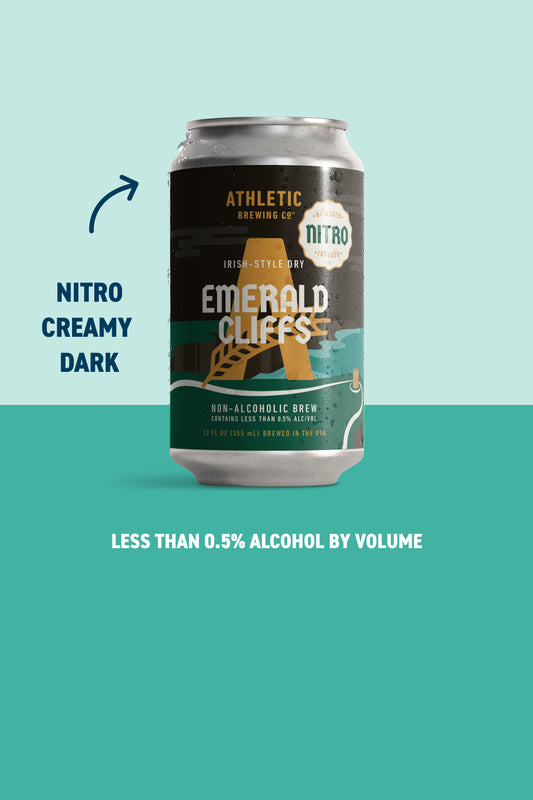

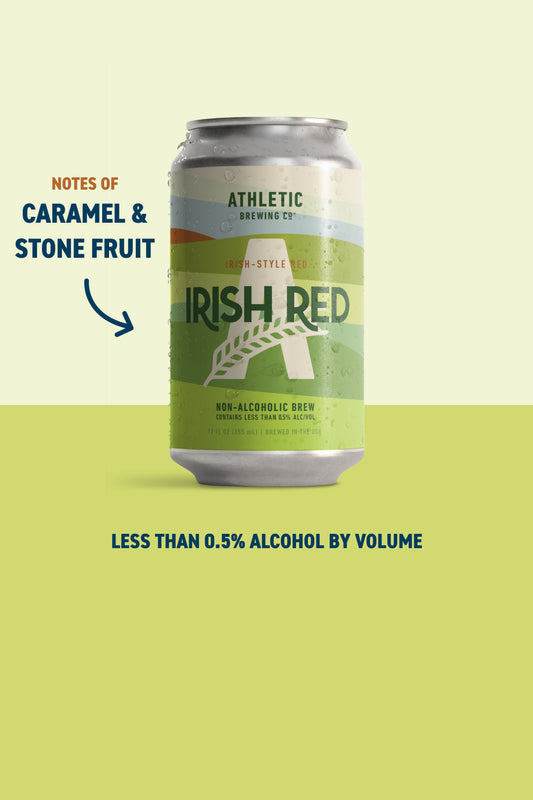


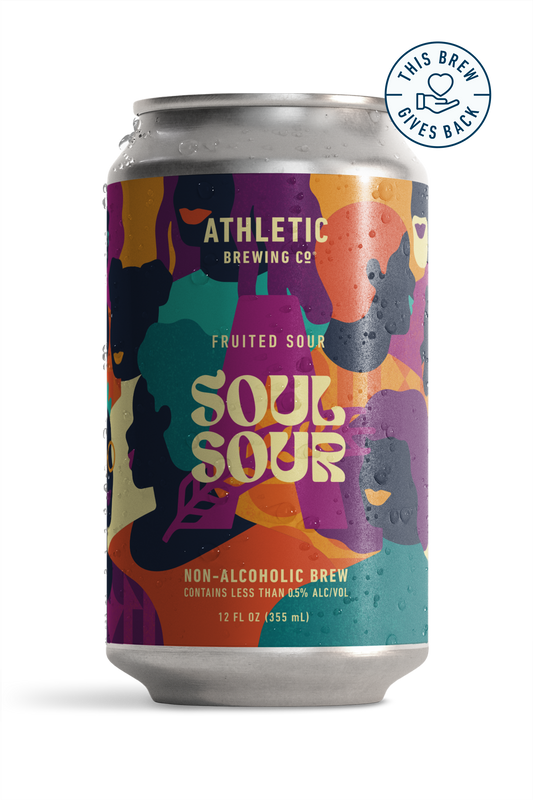
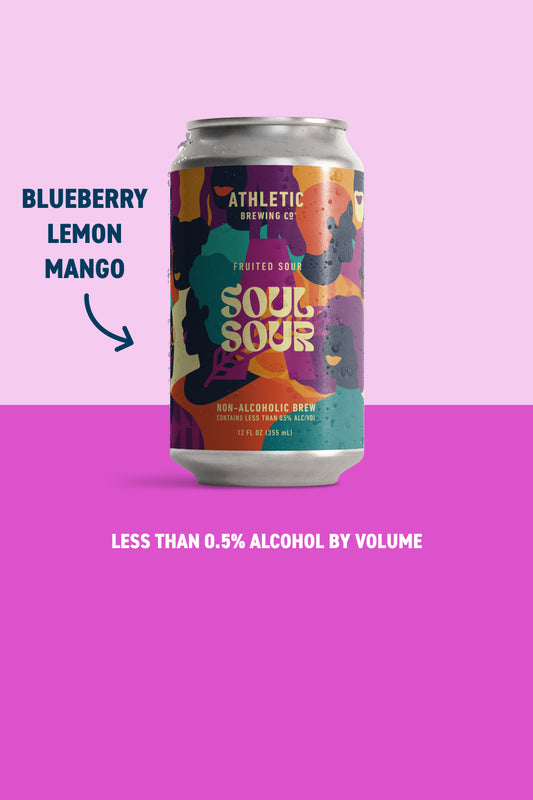
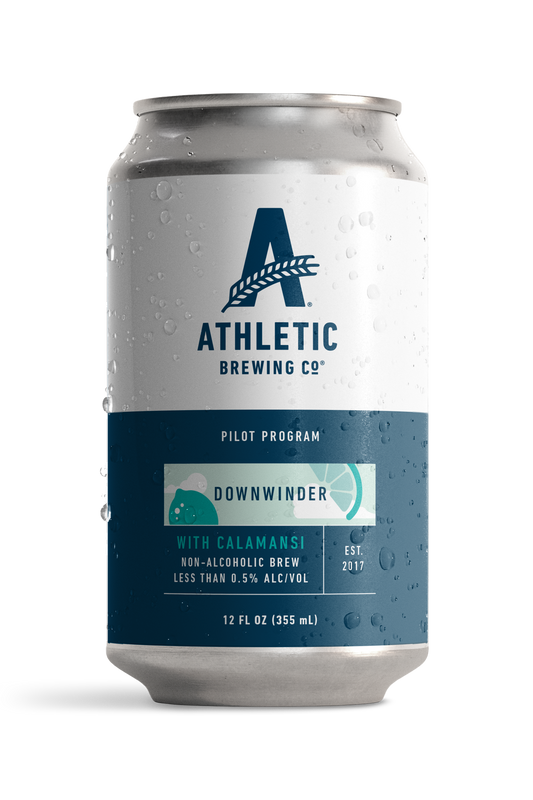


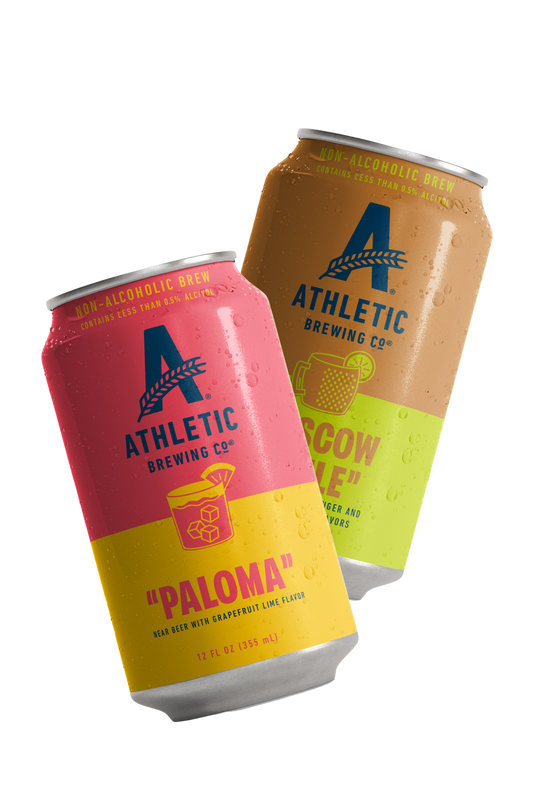
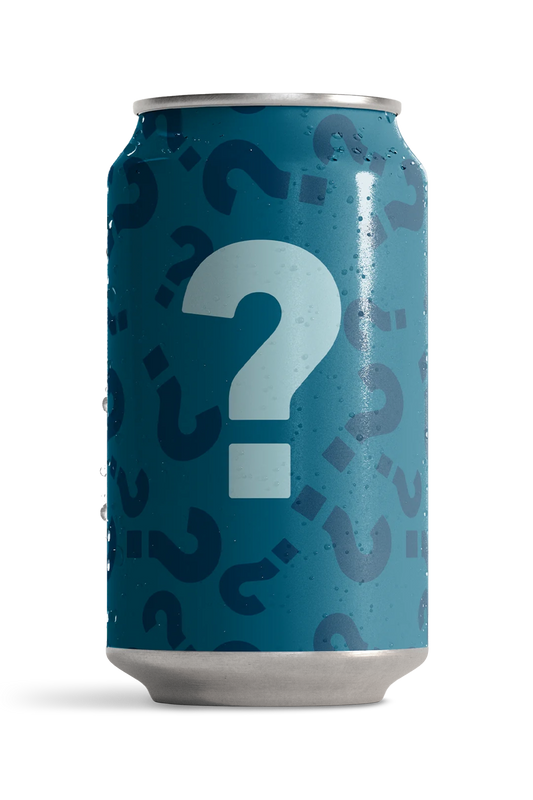
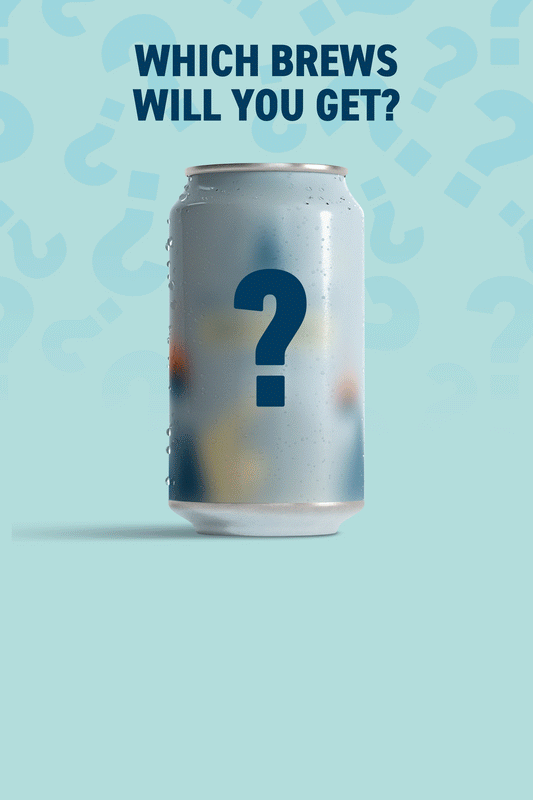
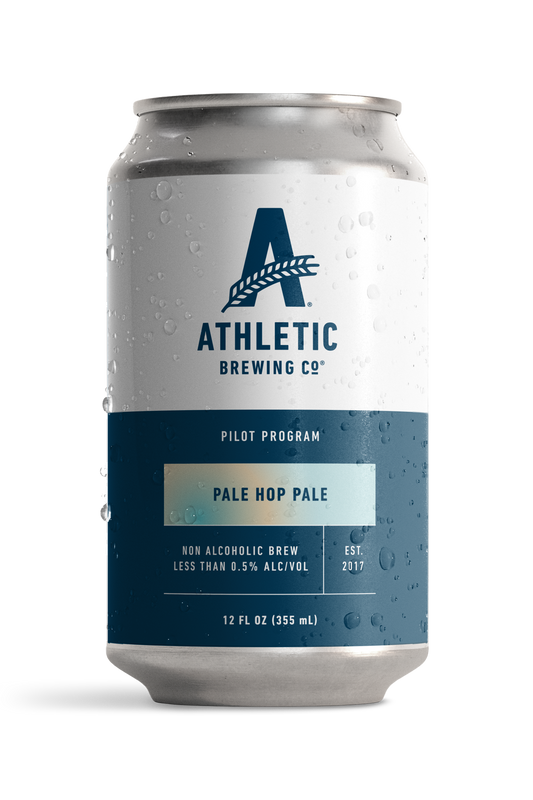
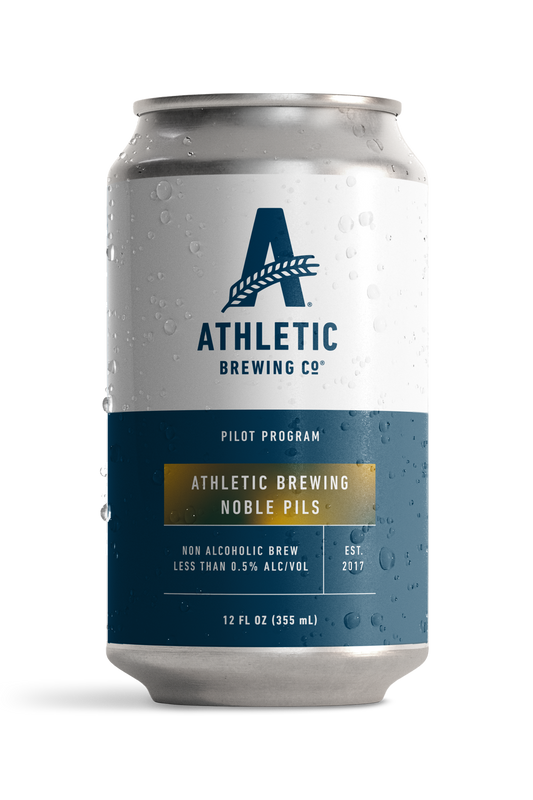

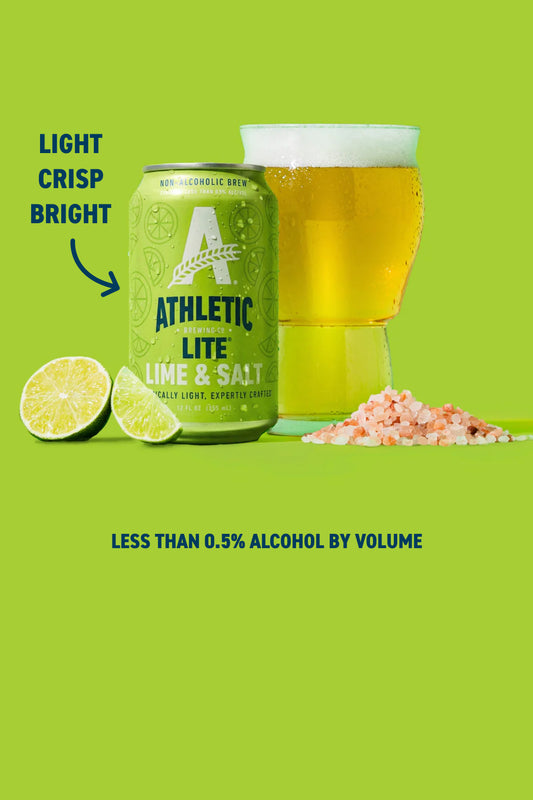
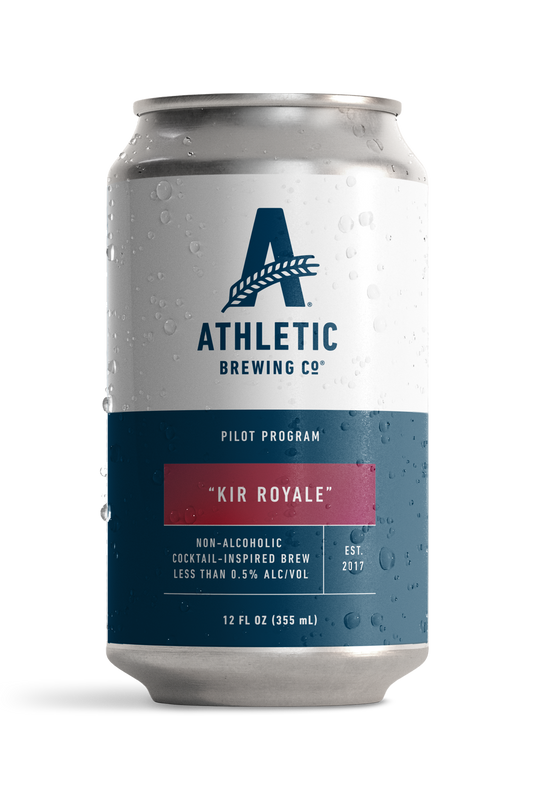

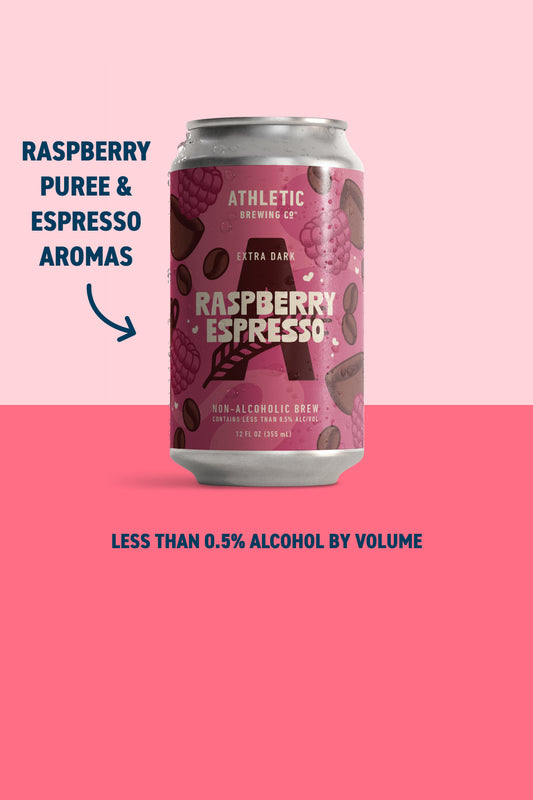
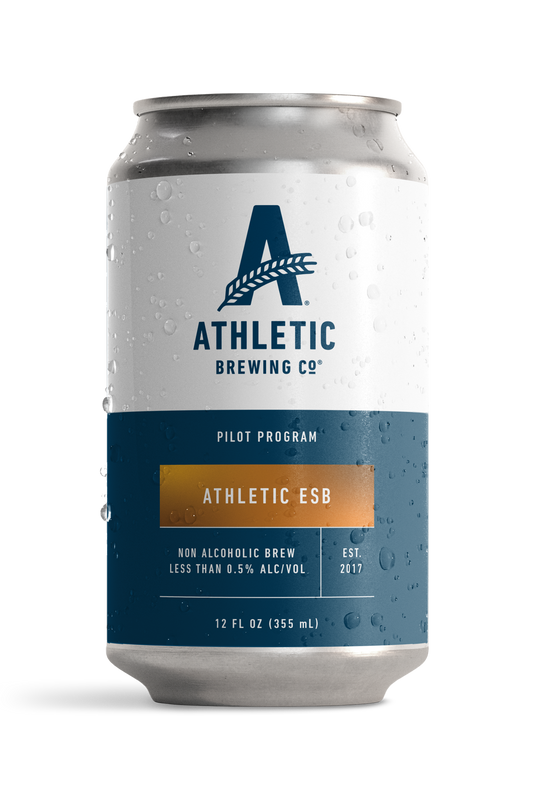
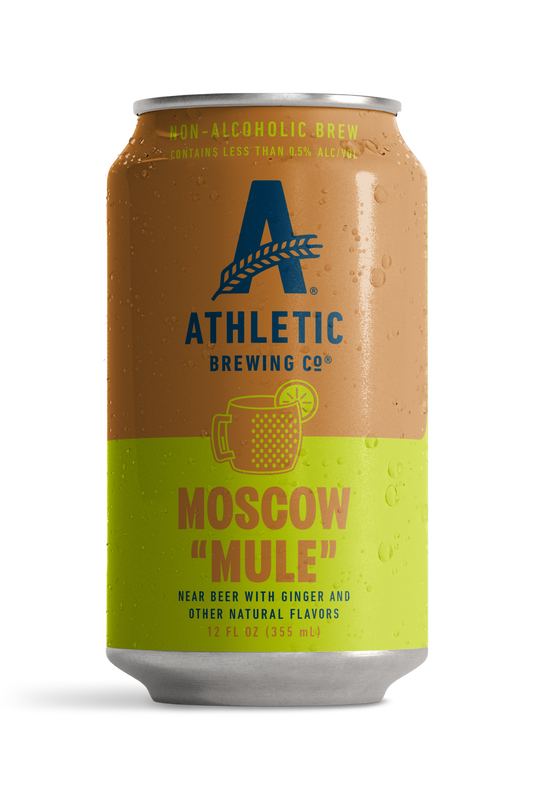
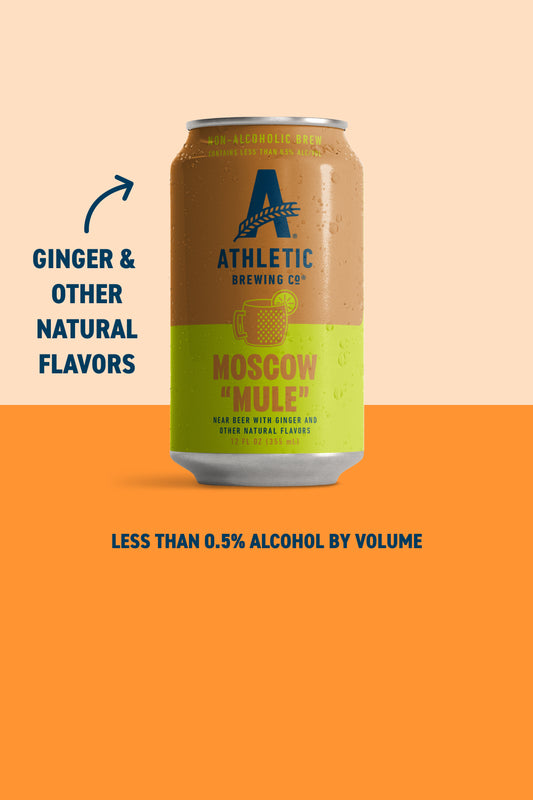
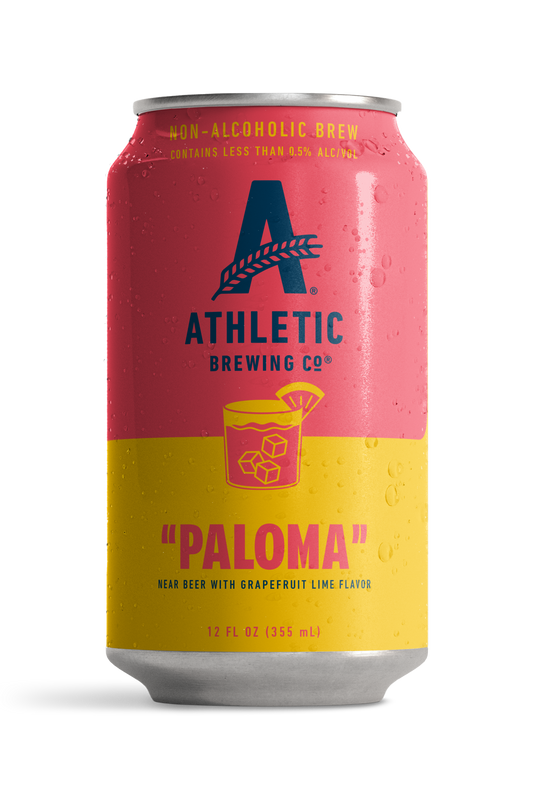
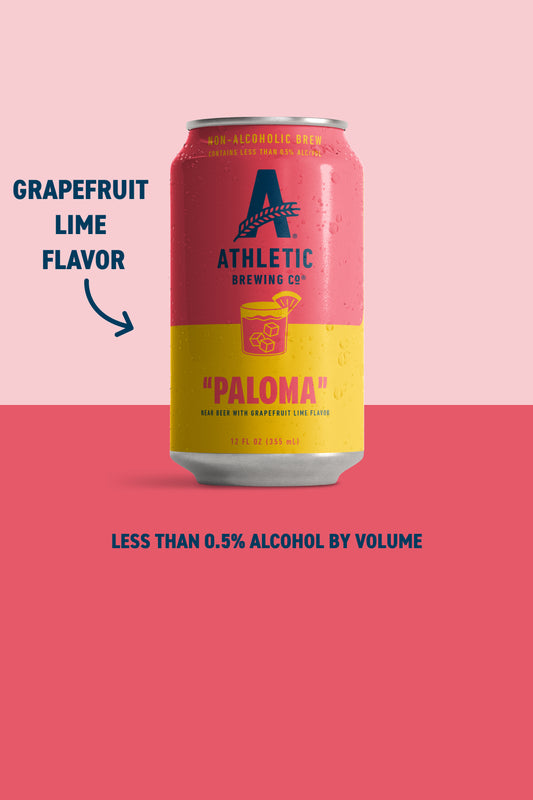









 Your Privacy Choices
Your Privacy Choices







